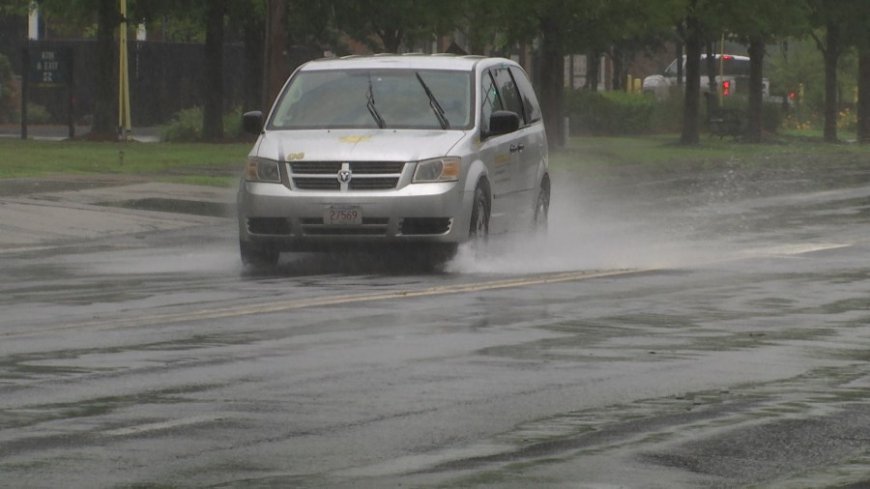AAA experts offer tips on driving through flooded roadways

CHICOPEE, Mass. (WWLP) - After severe weather this past weekend resulted in damage across the area, we are now expected to face more hazardous conditions, which can pose a danger to drivers.
AAA experts tell 22News that there's always an uptick in crashes when there's hazardous rain. Mainly do to poor tire traction and bad visibility.
As the rain continues to pour down, the chances of stream and street flooding become higher. This increases the possibility of drivers skidding and losing control on the roads. The best thing to keep in mind when you see a washed-out road, "turn around, don't drown."
"I try to avoid the puddles. I go slow and steady and keep a good eye out for other cars and pedestrians too," expressed Sarah Lacombe of Chicopee.
AAA says driving straight through puddles is not usually the best decision. If that water gets into your car's engine, it could stall out, or you could even hydroplane while driving. They say when you hydroplane, water builds up in front of your tires, the water forces itself underneath your wheels, and then you can't brake or steer.
"There are many instances where folks think they can get through. There are only a few inches, and it turns out that the water can get pretty deep, and it doesn't take a lot of water for a car to become immobilized," explained Spokesperson at AAA Northeast, Mark Schieldrop.
Just one-twelfth of an inch of rain and a speed of more than 35 miles per hour can cause tires to lose traction. AAA says to have a good set of tires on your vehicle that are properly inflated with a decent tread.
State law also requires that your headlights must be on when using wipers during bad weather."That will improve visibility for you, but it also makes you more visible to other people. A lot of times when all that spray is being kicked up, you can disappear in someone's mirror so they may not see you," added Schieldrop.
If you do encounter a flooded road, AAA says turn around and find an alternate route. But if you do find yourself in a large puddle to remain calm. "Just lift your foot off the gas, try to slow down as best you can, and remember that gravity and the weight of your vehicle is your friend in those situations," said Schieldrop.
Some safety systems in cars, like sensors and cameras, may also malfunction in bad weather. AAA suggests not to always rely on these and to check your blind spots often.
WWLP-22News, an NBC affiliate, began broadcasting in March 1953 to provide local news, network, syndicated, and local programming to western Massachusetts. Watch the 22News Digital Edition weekdays at 4 p.m. on WWLP.com.
What's Your Reaction?
 Like
0
Like
0
 Dislike
0
Dislike
0
 Love
0
Love
0
 Funny
0
Funny
0
 Angry
0
Angry
0
 Sad
0
Sad
0
 Wow
0
Wow
0






































